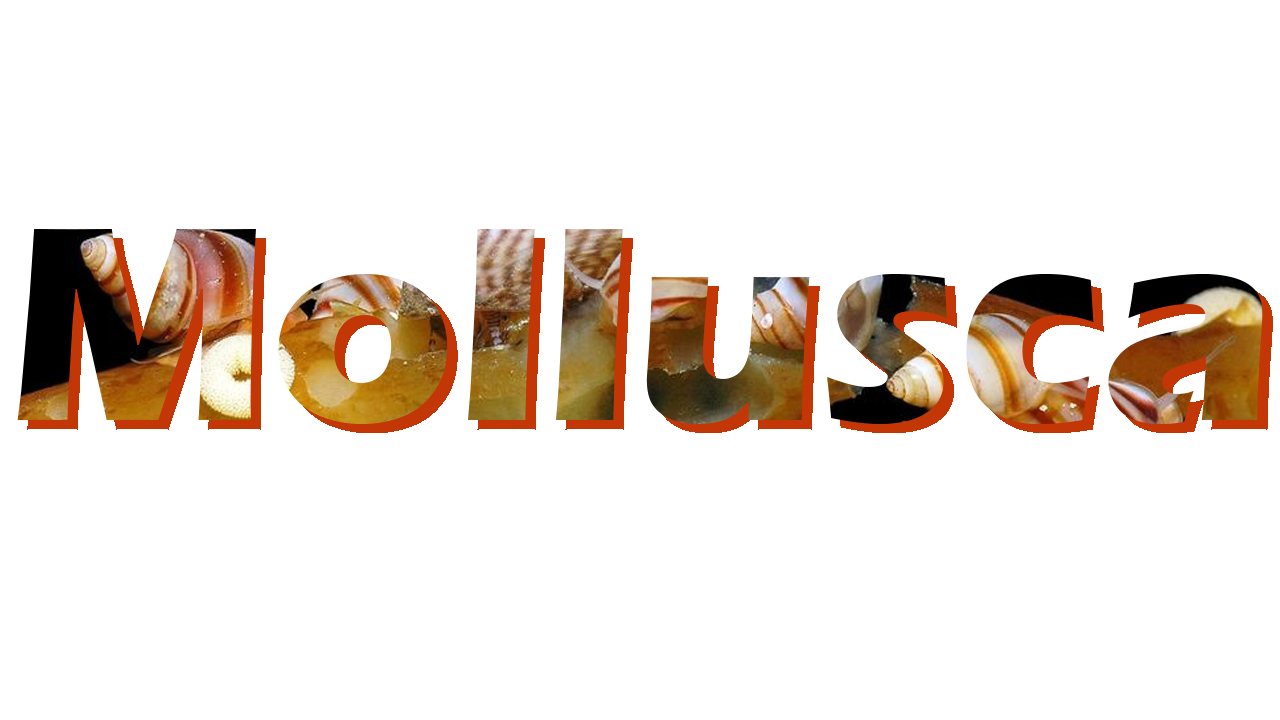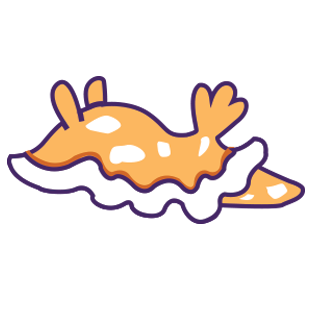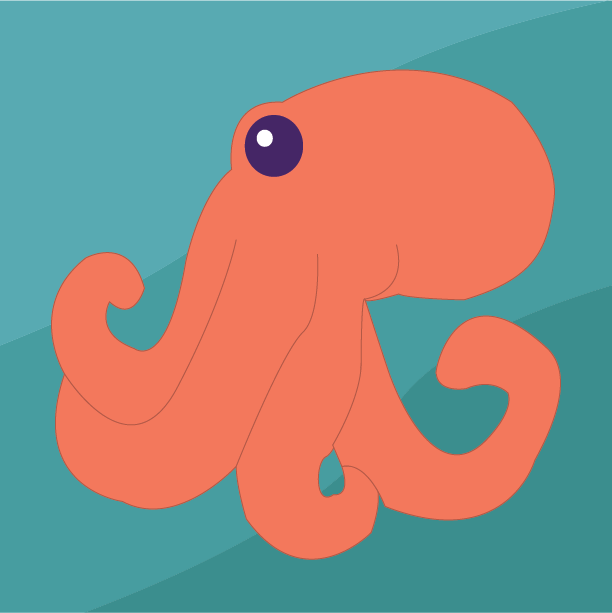Mollusca is a phylum of the kingdom Animala. The name translates to "soft body." Mollusca is the second largest animal phylum, being beaten by arthropoda by over one million species. Similar to arthropods, mollusks also have plenty of species that are not marine animals such as snails and slugs. It may seem strange that a phylum filled with species that have hard shells have a name that means "soft," but it's actually because there is a soft mass of tissue called the mantle that protects the inner organs. Not all mollusks have shells, however. Sea slugs (our mascot!) have soft bodies. Some mollusks are able to move with a foot, while others can swim or use jet propulsion to move around. The "foot" that some mollusks have is not the same foot that you may be picturing, but is rather a muscular organ that's sole purpose is movement, so it may not look like a conventional foot. For example, gastropods like snails move around using a foot, but obviously it's not the same type of foot that humans or arthropods have. Some predators and prey of common mollusks are:
- Carp (predators of clams)
- Sperm Whale (predators of giant squid and octopi)
- Sharks (predators of squid and ocotpi)
- Sea Birds (predators of squid, clams, and octpi)
- Walruses (predators of clams)
- Dolphins (predators of squid)
- Sea Stars (prey of octopi)
- Sea Otters (predators of octopi)
- Snails (prey of octopi)
- Plankton (prey of clams)
- Fish (prey of octopi and squid)
- Giant Clam (Bivalva)
- Colossal Squid (Cephalopoda)
- Chambered Nautilus (Cephalopoda)
- Blue Sea Dragon (Gastropoda)
- Mimic Octopus (Cephalopoda)
- Queen Conch (Gastropoda)
- Asian Clam (Bivalva)
- Webfoot Octopus (Cephalopoda)
- Bay Scallop (Bivalva)
- Caribbean Reef Squid (Cephalopoda)
- Penguin's Wing Oyster (Bivalva)
- Garden Snail (Gastropoda)
- Bladder Moon Snail (Gastropoda)
- Gumboot Chiton (Polyplacophora)
- Mangrove Cupped Oyster (Bivalva)
- New Zealand Mud Snail (Gastropoda)
- East Pacific Red Octopus (Cephalopoda)
- Butterfly Chiton (Polyplacophora)
- Fan Mussel (Bivalva)
- Shaggy Sea Hare (Gastropod)
- Geoduck (Bivalva)
- Common Whelk (Gastropoda)
- Woody Chiton (Polyplacophora)
- Red Lined Bubble Snail (Gastropoda)


